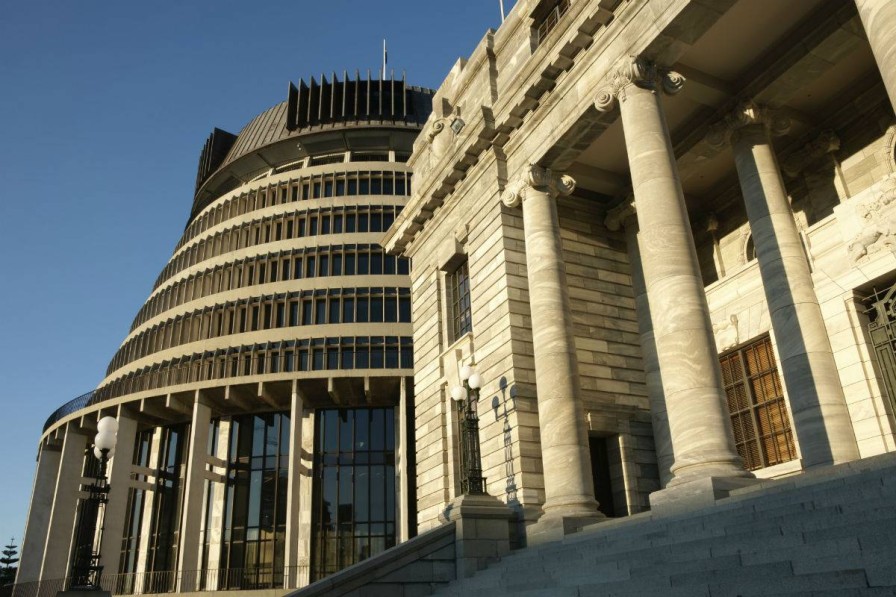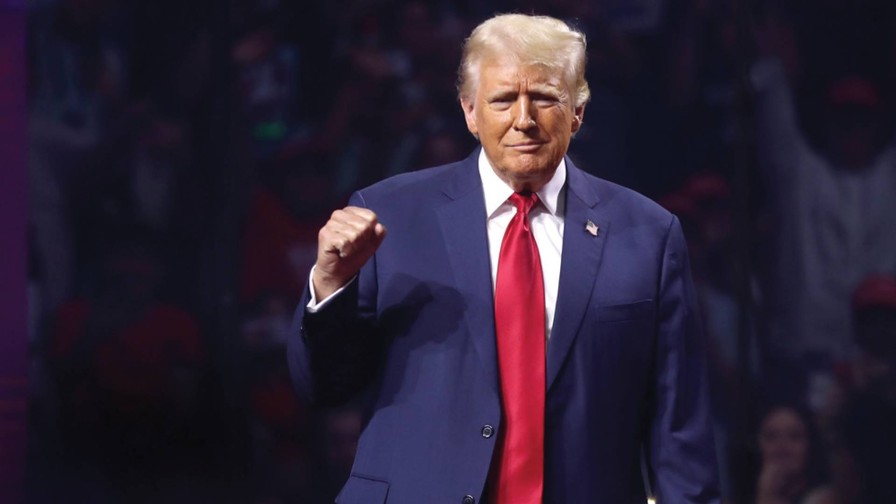Trump’s election an opportunity for NZ: local Citi boss
Stefan Boisen talks debt, investment banking, Trump, and 50 years of business in New Zealand.
Citi New Zealand chief executive Stefan Boisen.
Stefan Boisen talks debt, investment banking, Trump, and 50 years of business in New Zealand.
Citi New Zealand chief executive Stefan Boisen.
The election of Donald Trump as President of the United States presents opportunities for New Zealand’s economy, the local head of US banking giant Citi says.
Citi New Zealand chief executive Stefan Boisen also sees potential for the business to increase its investment banking advisory activity here, as the group marks 50 years of operating in New Zealand.
Boisen was in March this year named Citi’s local boss following the retirement of long-standing chief executive Derek Syme at the end of 2023.
Prior to this appointment, Boisen was the head of corporate bank for Citi New Zealand and had been part of the organisation for 24 years.
He has been charged with driving Citi’s strategy in New Zealand, with Citi Australia and New Zealand head Mark Woodruff saying at the time of Boisen’s appointment that New Zealand was an important growth market for Citi.
Boisen told NBR that Citi’s local revenue was up more than 60% over the last five years. The local business has 22 staff.
That had been driven in part by the strong performance of the local debt capital markets business, particularly in helping the Big Four banks raise money in the US and in helping arrange Auckland Council’s €600 million ($1 billion) green bond earlier this year.
The Government is also a regular issuer, with Citi last year reappointed to an All-of-Government banking panel – a position it has held since 2015. It’s the only international bank on the panel.
But Citi had also added new clients this year, particularly local subsidiaries of multi-national clients joining its commercial banking business. It now has 700 companies doing business with it in New Zealand.
“The bank has globally got its banking business, which comprises the classic corporate banking that Citi has been doing in New Zealand from day dot for 50 years,” he said. “Then, in a number of markets around the world, the bank has launched a commercial banking business, targeting that next generation of client that’s coming through.
“We’re now supporting those clients as they look to come to New Zealand and do business here. Every other week we’re adding a new client into the network.”

Wellington’s Beehive.
Boisen said local clients were increasingly optimistic as interest rates began to fall.
And positivity was coming back into the boardroom of many businesses that were gaining the confidence to invest in their businesses again.
That was why he anticipated growth to come for its local investment banking business, headed by Nick Forster.
Deals the firm had been involved in included Citi running a strategic review for Vector, which resulted in the sale of 50% of its metering business to QIC Private Capital for $1.74 billion; as well as advising on the $1.9b sale of Waste Management to Igneo Infrastructure.
During Covid-19, Citi helped Air New Zealand raise $1.2b. Boisen said clients were attracted to Citi’s global reach and knowledge, with the firm operating in 95 countries.
“We’ve stood up as an investment banking business here on the ground,” Boisen said. “It’s one person, and then people are coming in from Australia to support him. Nick is a very seasoned and respected individual within investment banking.
“His job, along with myself, is to drive that strategic dialogue and look to provide the insights and advice.”

US President-elect Donald Trump. Credit: Gage Skidmore.
And, being the local head of a US bank, clients have been keen for Boisen’s take on Donald Trump’s re-election to the White House.
He said New Zealand had enjoyed strong relationships with both Republican and Democratic governments in the past and that Trump’s win presented opportunities for New Zealand.
“Donald Trump may or may not introduce the tariffs he talks of … We see a probably slightly higher inflation outlook in the US, and that will mean our export receipts are higher, all else being equal,” he said.
“We see the US pursuing more energy independence, potentially more old-school energy in terms of increased oil production. If that does play out, that way then, from a petrol pump perspective, maybe that’s a good thing for New Zealand and maybe we’ll see lower input energy costs coming to New Zealand.
“There’s a lot to play out and, like anything in business, there will be areas that benefit and then there’ll be challenges for others.”